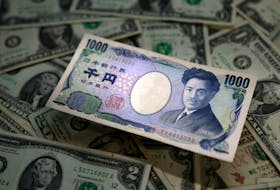By Steven Scheer
JERUSALEM (Reuters) - Four of five rate setters at the Bank of Israel voted to keep the benchmark interest rate
The fifth monetary policy committee (MPC) member supported a 15 basis point reduction to 0.1%. A Reuters poll had showed 10 of 16 economists surveyed forecast the central bank would lower its key rate for the first time since 2015.
Three of the four voting for steady rates cited solid economic growth, a tight labor market, inflation expected to move back into its annual 1-3% target range in a year's time and the Federal Reserve and European Central Bank likely having exhausted monetary easing steps for now.
"However, they added that the risks to activity and to inflation are significant, so there may be a need to increase the extent of monetary policy accommodation going forward," the minutes said.
"Although the inflation rate is expected to return to the lower bound of the target in a range of about a year, the uncertainty regarding that is high."
Another MPC member argued that there was no need for further rate cuts since the economy was doing well - growing at around 3% a year - and policy was already very accommodative.
The member voting for a rate cut said the sharp appreciation of the shekel this year is liable to adversely affect economic activity and lead to a further decline in the inflation rate, which stood at an annual 0.4% in October.
This member also claimed that slower economic activity globally is a "significant risk" and requires lower rates.
"Committee members noted that the committee takes additional steps as necessary to make monetary policy even more accommodative," the minutes said, referring mainly to intervention in the foreign exchange market.
Moments after the rate decision, the Bank of Israel started to buy foreign currency to stem the shekel's gains, which had reached as much as 7.5% versus the dollar last month and 9% against a basket of currencies of Israel's main trading partners.
The bank said last week it had bought $1.27 billion of foreign currency in November.
(Reporting by Steven Scheer; Editing by Tova Cohen and Hugh Lawson)








